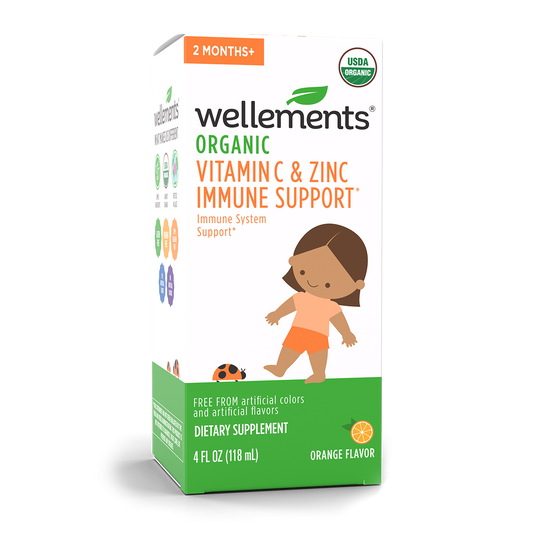How You Can Boost Your Child's Immunity
| updated:Share

From birth, an infant’s immune system begins to gradually mature. Within months, your baby will evolve from depending on your maternal antibodies to its own immune response. There are various things to consider when it comes to making this transition smooth and keeping your baby’s immune system strong.
Understand Your Baby’s Developing Immune System
Despite a less developed immune system, a newborn is still equipped with various maternal antibodies. A mother’s antibodies are shared with her baby through the placenta during the third trimester, as well as through breast-milk after birth. After the first 3 to 6 months, maternal antibodies metabolize and the baby’s own immune system takes over. Yes, this makes babies more vulnerable to infections and diseases, but there are multiple things in your power to help keep your baby healthy.
Why Is It Essential To Boost Your Infants Immunity?
Exposure to germs is unavoidable — which can be good since that is what ignites the immune system into action! With adequate support, those inescapable germs can become a source of longer term resiliency as long as your infant's immune system is equipped to keep them at bay. Proper nourishment of your baby’s body, and especially, their gut is indivisible from the strength of their immune system.
Breastfeeding and Nutrition
Breastmilk! Breastmilk is a powerhouse, delivering loads of antibodies and nutrients in proper quantities. This includes macro nutrients, micro nutrients, prebiotics, and probiotics — all integral to a symbiotically healthy immune system and gut. For non-breastfeeding parents, choosing the right, clean, and balanced formula offering comparable immune-supporting nutrients is essential.
Immune Boosting Supplements for Your Infant
As with anyone, sometimes an infant’s immune system needs an extra boost. Supplements, specifically those prioritizing Vitamin C and Zinc, can be incredibly helpful in supporting your infant’s immune system. During times of greater pathogen exposure or suspected diet deficiencies, vitamins formulated specifically for an infant’s immune system, like Wellements Organic Vitamin C & Zinc Immune Support, offer a powerful immunity boost. The organic liquid supplement is free of allergens, parabens, and artificial ingredients, making it safe for babies as young as two months old.
Vitamin C & Zinc Immune Support
4.2 / 5.0
(12) 12 total reviews
Prioritize Your Infant’s Gut Health
A strong immune system cannot happen without a healthy gut. The gut microbiome is loaded with both beneficial and harmful bacteria, and the more your baby explores new people and places, the more microbial species they expose themselves to. Maintaining a healthy balance between the good and bad bacteria allows the gut microbiome to properly guide the immune system in how to respond to pathogens. Probiotics play a major role in actually facilitating this process. Supplementing with probiotics made specifically for infants can be a great addition to enhance overall health and immunity. Wellements Organic Probiotic Drops offer a preservative-free option that can be incredibly helpful in strengthening the gut barrier and nurturing beneficial bacteria.
Create A Stable Sleep Routine
Your baby’s body is strengthening its own immune system during sleep — literally! When your baby sleeps, their body releases cytokines, a protein that is instrumental in identifying and properly responding to pathogens. Additionally, adequate sleep is instrumental to your baby’s mental, physical, and emotional health, which all impact the immune system. Calming routines — a warm bath, dim red light, soft music, skin-to-skin bonding, or consciously made soothing aromas like Sleepy Time Spray — help reduce cortisol levels and promote wellness.
Supplements can offer numerous benefits in supporting your baby’s immune system, though double checking the label to ensure the ingredients are clean, gentle, and effective is crucial. Wellements, founded and run by parents, always stands by its commitment to create certified organic essentials that safely optimize your infant’s health.
Unfortunately, germ exposure is a year-long occurrence. However, from the antibodies you initially transfer to the ways in which you nurture your infant’s immunity for the months and years to come, there is a lot in your power to make sure your baby’s immune system remains strong and prepared.
Sources:
- https://pubmed.ncbi.nlm.nih.gov/16373990/
- https://pmc.ncbi.nlm.nih.gov/articles/PMC8001875/
- https://www.mayoclinichealthsystem.org/hometown-health/speaking-of-health/sleep-an-essential-element-of-success-for-children



